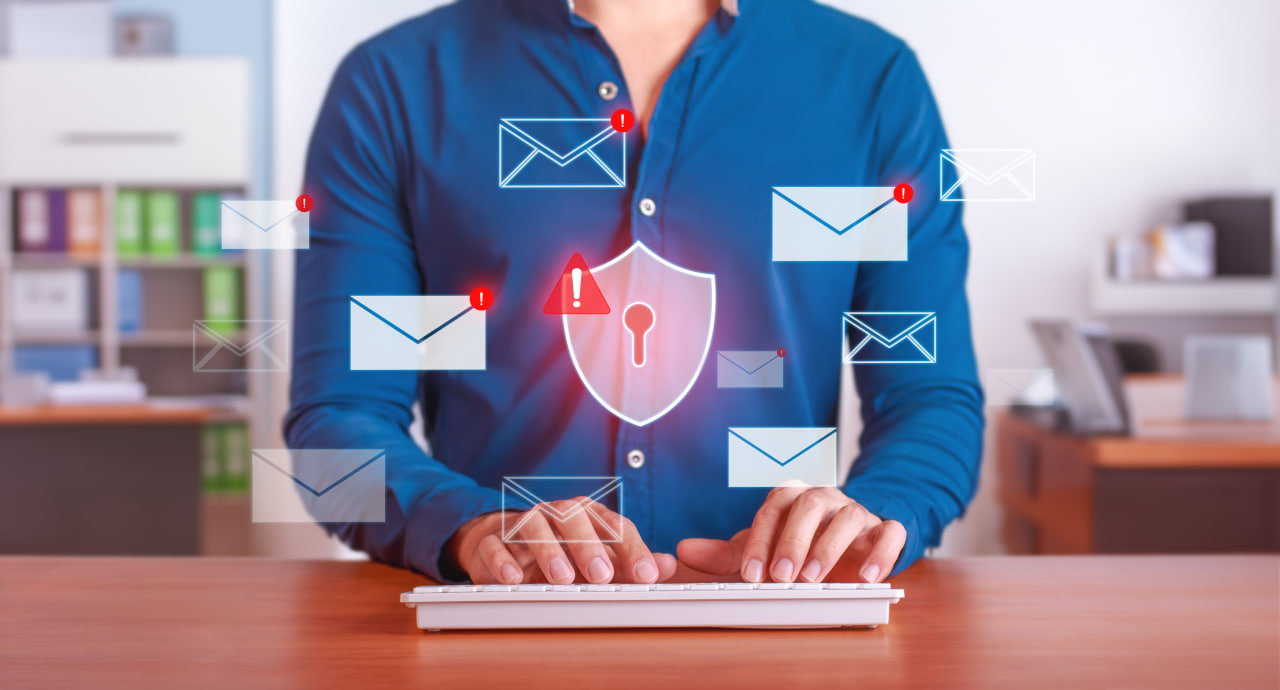Security Considerations When Choosing a SaaS Solution for Email Marketing
Introduction:
In today’s rapidly evolving digital landscape, businesses rely heavily on SaaS (Software as a Service) solutions for various functions, including email marketing. However, as organizations adopt these cloud-based services, ensuring that sensitive data remains secure becomes crucial. When it comes to email marketing, which involves handling customer data and sending targeted communications, security is not just a priority—it’s an absolute necessity. This post will explore the key security considerations that businesses should evaluate when selecting a SaaS solution for email marketing.
1. Understanding SaaS Security: A Brief Overview
Before diving into the specifics of email marketing, it’s essential to understand what makes SaaS solutions inherently secure or vulnerable. SaaS providers host applications and data on the cloud, allowing businesses to access these services over the internet. While this offers flexibility and scalability, it also introduces potential security risks, such as data breaches, phishing attacks, and unauthorized access.
For email marketing, data security should be a top priority, as businesses handle personally identifiable information (PII), financial data, and sometimes even sensitive health data through email communications. As a result, understanding how to assess the security posture of a SaaS solution is essential for protecting your business and clients.
2. Key Security Features to Look for in a SaaS Solution for Email Marketing
When evaluating SaaS email marketing platforms, the following security features should be non-negotiable:
a. Data Encryption
Email marketing solutions store a lot of sensitive data, and encryption ensures that this information remains unreadable to unauthorized users. Look for platforms that offer both data encryption in transit (SSL/TLS) and data encryption at rest. This prevents hackers from accessing emails, customer data, and other confidential information, even if they breach the system.
b. Two-Factor Authentication (2FA)
Two-factor authentication is an additional layer of protection that ensures only authorized users can access your account. This feature is crucial for preventing unauthorized logins, especially when email marketing accounts are frequently targeted by cybercriminals.
c. Data Access Controls
It’s important to restrict access to sensitive email marketing data based on roles within your organization. Look for platforms that allow administrators to set granular access permissions. For example, marketers should only have access to campaign data, while finance teams should be restricted from viewing customer email addresses.
d. Regular Security Audits and Vulnerability Assessments
A reliable SaaS provider conducts regular security audits to identify potential vulnerabilities in their systems. Ensure that your email marketing provider has a consistent history of performing vulnerability assessments and patching any identified issues promptly.
e. Compliance with Regulations
Depending on your industry, your email marketing platform may need to comply with certain regulations, such as the GDPR (General Data Protection Regulation) in the EU, or CCPA (California Consumer Privacy Act) in the US. Choose a platform that is compliant with these regulations to ensure that your business stays protected from legal consequences.
3. Best Practices for Securing Your Email Marketing Platform
Once you have selected a secure email marketing SaaS platform, it’s equally important to implement security best practices within your organization. Here are some best practices:
a. Use Strong Passwords
A strong password policy reduces the risk of unauthorized access. Avoid using common passwords and implement password strength rules (e.g., a mix of upper and lowercase letters, numbers, and special characters).
b. Limit Email List Access
Restrict who can access your email lists. Your marketing team should only have access to the data they need to perform their tasks. Regularly review access logs to ensure no unauthorized users are accessing sensitive data.
c. Monitor and Analyze Email Campaigns for Threats
Email marketing platforms often have built-in tools to detect and block phishing attempts, but it’s important to actively monitor your campaigns for any signs of phishing or other malicious activities.
d. Educate Your Team on Phishing Risks
Phishing is one of the most common ways cybercriminals compromise email marketing systems. Train your marketing team to identify phishing attempts and avoid clicking on suspicious links.
4. Evaluating SaaS Providers: A Comprehensive Checklist
Choosing the right email marketing solution involves evaluating various factors beyond just security. Use the following checklist to evaluate SaaS providers:
- Security Protocols: Ensure that the platform offers robust security features, such as encryption and two-factor authentication.
- Compliance: Verify that the platform complies with relevant data protection laws (GDPR, CCPA, etc.).
- Reputation: Look for providers with a strong reputation for security and data protection.
- Customer Support: A good SaaS provider should have responsive customer support available in case of security incidents.
- Backup and Disaster Recovery Plans: Check if the provider has strong backup protocols and disaster recovery measures to minimize downtime in case of a breach.
5. Case Study: Securing Email Marketing with XYZ Corp
Background: XYZ Corp, a mid-sized e-commerce company, faced numerous challenges with email marketing security. Their previous SaaS provider had limited data encryption and weak authentication protocols, leaving the company vulnerable to attacks.
Challenges:
- A breach led to unauthorized access to customer email lists, which resulted in phishing attacks targeting their clients.
- Poor compliance with GDPR, leading to concerns about data privacy and potential legal action.
Solution: XYZ Corp switched to a new email marketing SaaS platform, MailChimp, which offered advanced encryption, robust 2FA, and comprehensive compliance features. The company also implemented strict data access controls and regular vulnerability assessments.
Real-Life Example: MailChimp’s Response to Security Breaches
MailChimp, one of the leading email marketing platforms, faced a significant security breach in 2021. Hackers used social engineering to gain unauthorized access to several accounts, exposing email lists and sensitive customer data. In response, MailChimp quickly addressed the breach by tightening security protocols, including implementing more robust two-factor authentication (2FA) and enhancing internal monitoring systems.
Following the breach, MailChimp also conducted a thorough review of its security measures and issued transparent communications to affected customers. This incident highlights the importance of not only choosing a secure email marketing SaaS provider but also understanding how they handle breaches and their response times.
Results:
- After switching to the new platform, XYZ Corp significantly reduced security risks.
- The company avoided potential fines due to better GDPR compliance.
- Customer trust improved, and XYZ Corp reported a 30% increase in email engagement due to better campaign security.
6. FAQs
Q1: How do I know if my email marketing SaaS provider is secure? Look for platforms that offer end-to-end encryption, two-factor authentication, and compliance with industry regulations. You can also check their reputation and ask for a history of security audits.
Q2: What are the risks of not prioritizing security in email marketing? Not prioritizing security can lead to data breaches, customer trust loss, phishing attacks, and legal penalties for non-compliance with data protection laws.
Q3: Is it necessary to perform a security audit on my email marketing SaaS platform? Yes, regular security audits are crucial to ensure that any vulnerabilities are identified and addressed promptly.
Q4: Can email marketing software help prevent phishing attacks? Many platforms include anti-phishing tools, but you should also train your team to recognize phishing attempts and use best practices to secure your account.
Q5: How do I ensure my email marketing campaigns are compliant with GDPR? Choose a SaaS provider that is GDPR-compliant and ensure that you have the proper data protection processes in place, such as obtaining explicit consent from your customers.
Conclusion
Choosing the right email marketing SaaS solution is not only about selecting a tool that helps you send effective campaigns. It’s about ensuring that your data, and your customers’ data, is secure. With the rise in cyber threats, businesses must evaluate the security features, compliance, and best practices of any SaaS platform they consider for email marketing. By taking a proactive approach to security, you can ensure that your email marketing remains effective, efficient, and secure.






